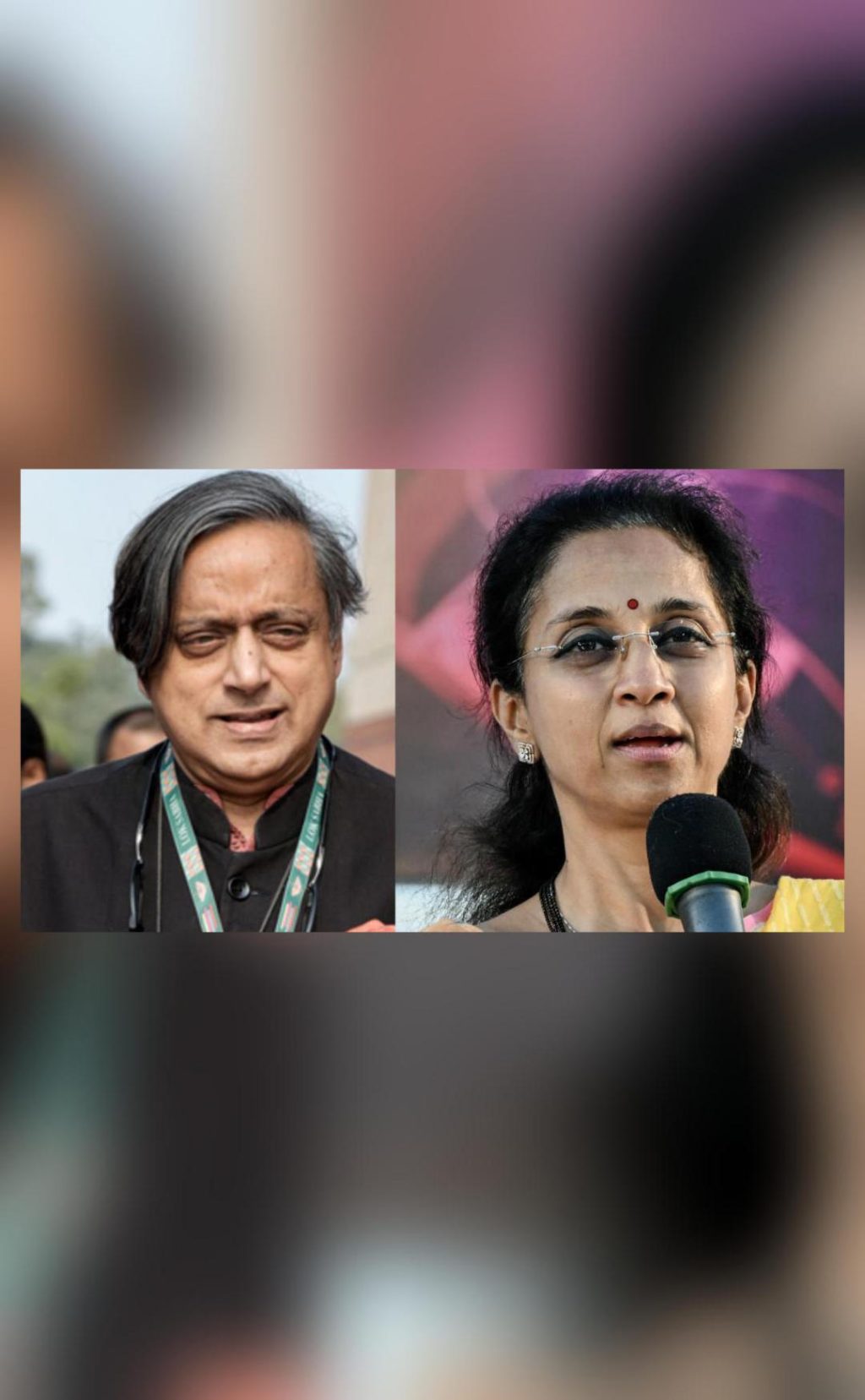
Tharoor, Sule & Others to Head Govt’s Global Delegations after Operation Sindoor
In a move aimed at reinforcing India’s stance on zero-tolerance towards terrorism, the government has appointed a group of prominent leaders to head delegations to key partner nations. The delegation, comprising leaders from various political parties, will convey India’s strong message to the world, emphasizing its unwavering commitment to combating terrorism.
Among the leaders chosen for this critical task are Congress MP Shashi Tharoor, NCP-SP MP Supriya Sule, Shiv Sena’s Shrikant Shinde, DMK’s Kanimozhi, BJP’s Baijayant Panda and RS Prasad, and JDU’s Sanjay Jha. These leaders will lead India’s diplomatic efforts, engaging with international partners to build solidarity against terrorism and extremism.
The announcement comes in the wake of “Operation Sindoor”, a recent military operation carried out by the Indian Army in Jammu and Kashmir. The operation aimed to neutralize terrorist hideouts and infrastructure, sending a strong message to those who seek to disrupt peace and stability in the region.
The government’s decision to appoint these leaders is significant, as it underscores India’s commitment to international cooperation in the fight against terrorism. By sending a delegation of leaders from various political parties, the government is signaling its resolve to work together with international partners to combat this global menace.
Shashi Tharoor, a well-known advocate for international cooperation and a seasoned diplomat, will lead the delegation to key Western nations, including the United States, the United Kingdom, and France. As a former UN Under-Secretary-General, Tharoor brings a wealth of experience and expertise in international diplomacy to the table.
Supriya Sule, a prominent leader from the NCP-SP alliance, will head the delegation to the Gulf region, including countries such as Saudi Arabia, the United Arab Emirates, and Iran. Sule’s reputation as a strong advocate for women’s empowerment and social justice makes her an ideal choice to represent India’s values of equality and inclusivity on the global stage.
Shrikant Shinde, a Shiv Sena leader and son of former Maharashtra Chief Minister, Devendra Fadnavis, will lead the delegation to Southeast Asia, including countries such as Indonesia, Malaysia, and Singapore. Shinde’s experience in state politics and his strong connections with regional leaders make him an effective ambassador for India’s interests in the region.
Kanimozhi, a DMK leader and daughter of late Tamil Nadu Chief Minister, M. Karunanidhi, will head the delegation to South Asia, including countries such as Sri Lanka, Bangladesh, and Nepal. As a strong advocate for women’s empowerment and social justice, Kanimozhi will be an effective ambassador for India’s values of equality and inclusivity in the region.
Baijayant Panda, a BJP leader and former MP, will lead the delegation to Central Asia, including countries such as Kazakhstan, Uzbekistan, and Turkmenistan. Panda’s experience in international relations and his strong connections with regional leaders make him an effective ambassador for India’s interests in the region.
RS Prasad, a BJP leader and former Law Minister, will head the delegation to Eastern Europe, including countries such as Poland, Czech Republic, and Slovakia. Prasad’s experience in law and governance makes him an effective advocate for India’s interests in the region.
Sanjay Jha, a JDU leader and former MP, will lead the delegation to West Asia, including countries such as Israel, Jordan, and Lebanon. Jha’s experience in international relations and his strong connections with regional leaders make him an effective ambassador for India’s interests in the region.
The government’s decision to appoint these leaders is a significant step towards reinforcing India’s commitment to combating terrorism and extremism. By sending a delegation of leaders from various political parties, the government is signaling its resolve to work together with international partners to combat this global menace.
As India continues to play a key role in global affairs, the leadership of these delegations will be crucial in shaping India’s international relations and reinforcing its commitment to zero-tolerance towards terrorism.






